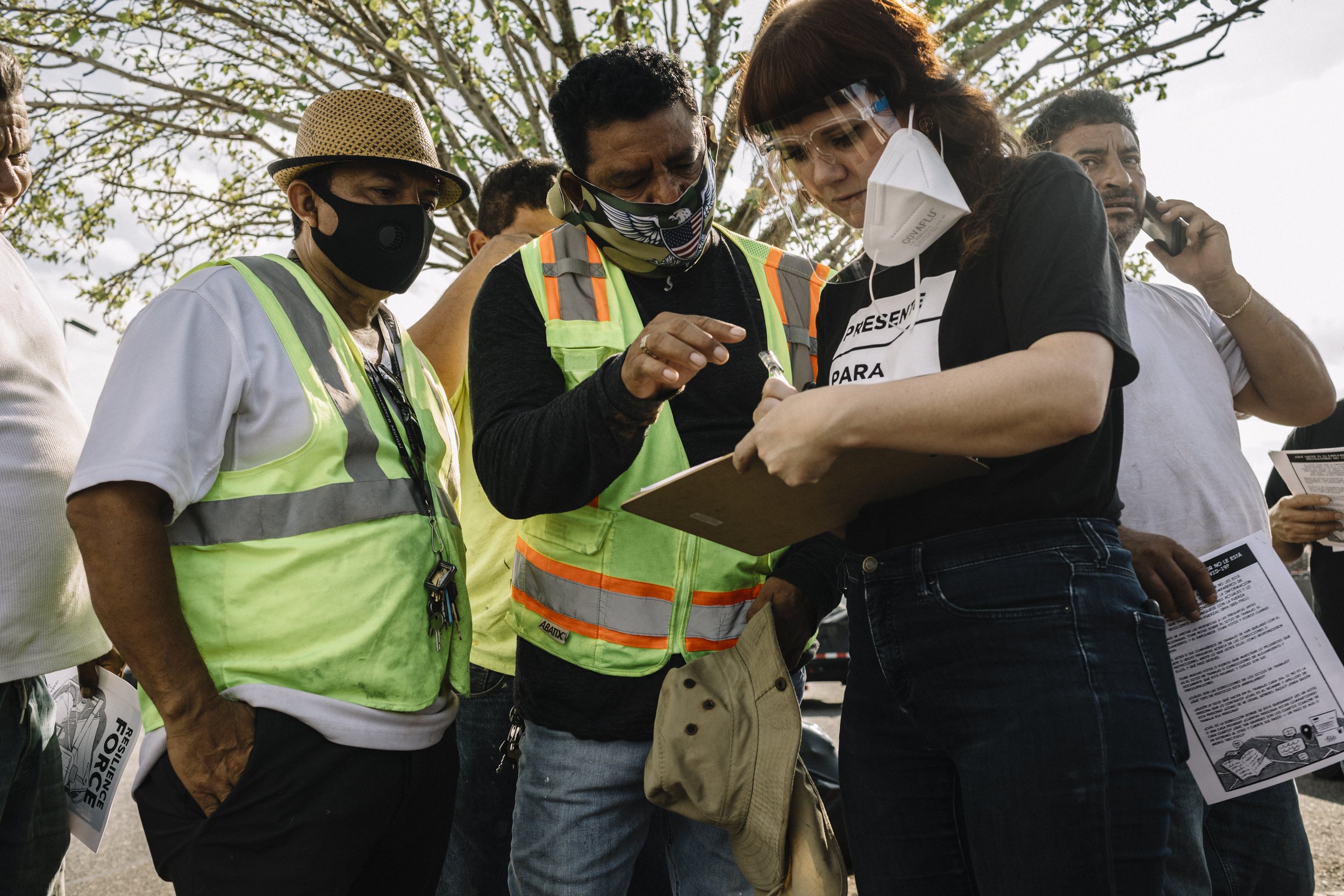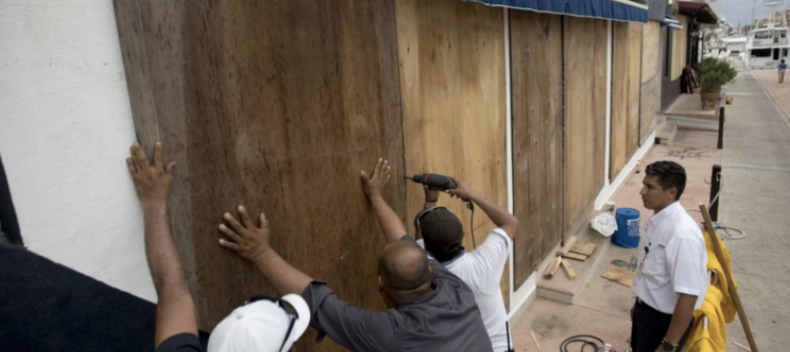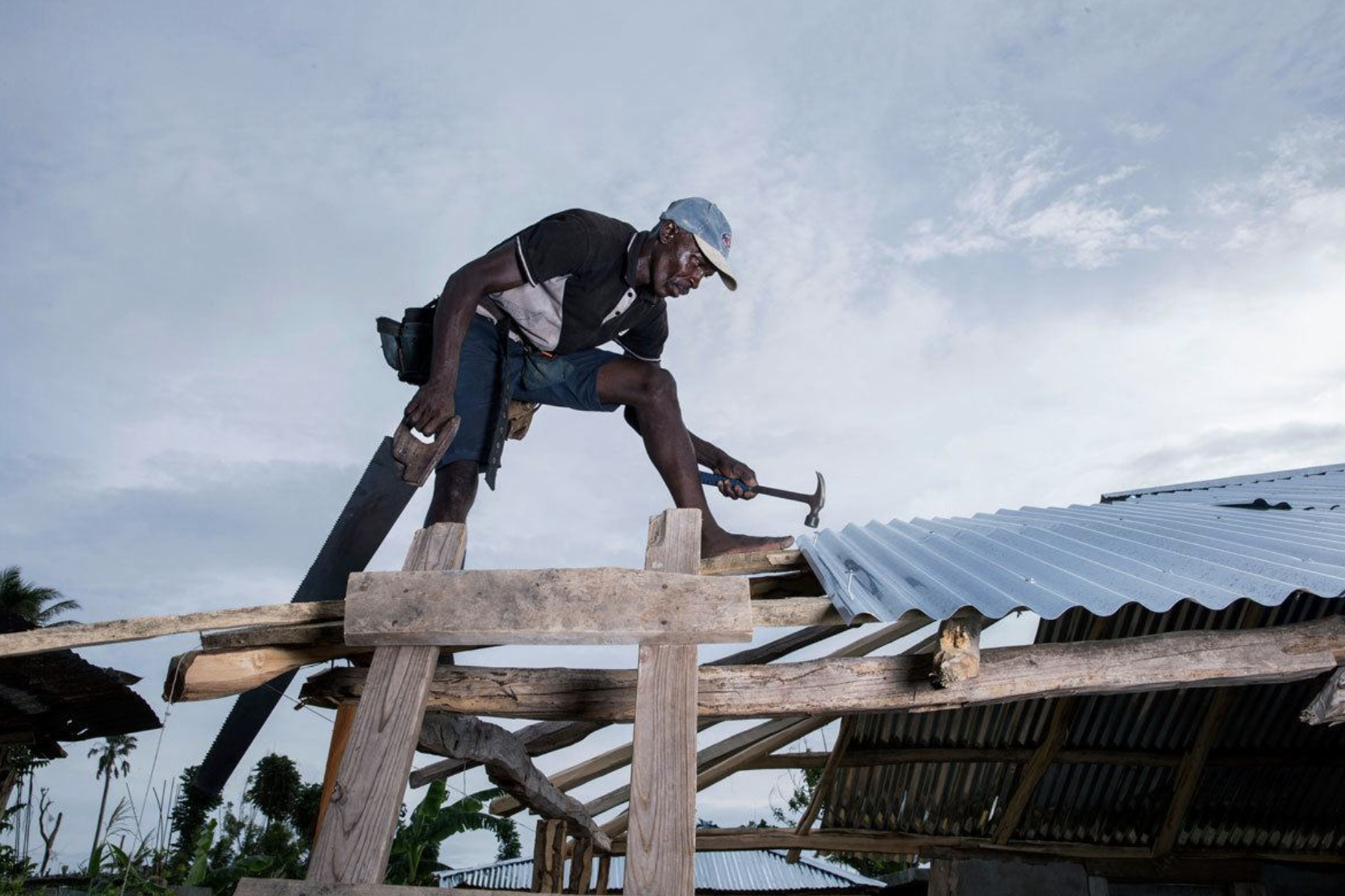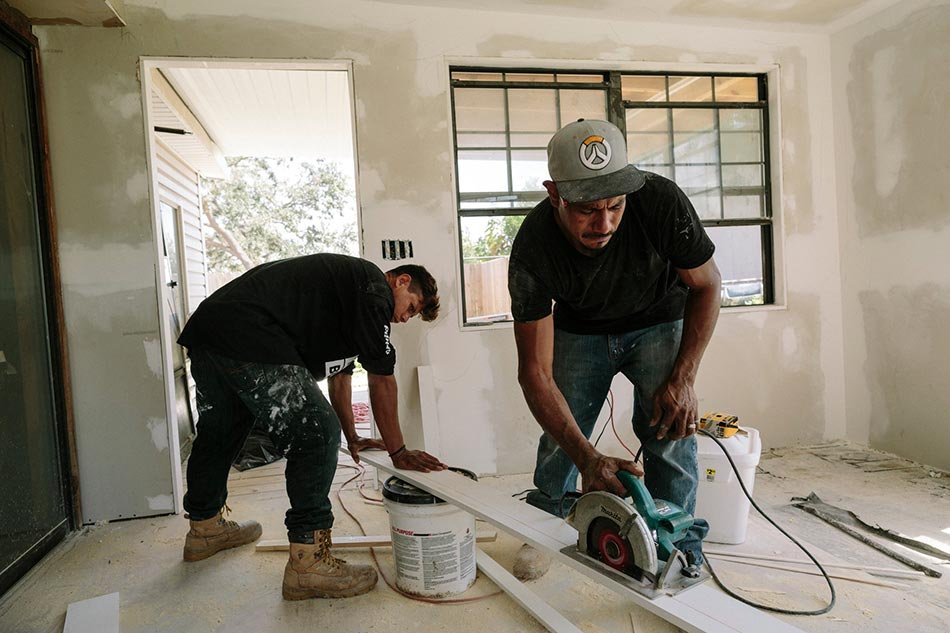
POLICY
IN THE ERA OF CLIMATE CHANGE AND SEVERE NATURAL DISASTERS,
RESILIENCE HAS BECOME OUR NATION’S LARGEST ANNUAL INFRASTRUCTURE PROJECT.
Billions of dollars for climate adaptation, mitigation, and recovery
are invested both publicly and privately each year.
AS A NATION, WE HAVE BECOME INCREASINGLY DEPENDENT ON THE WORK OF REBUILDERS AND REPAIRERS ON THE FRONTLINES TO TEND TO OUR HOMES, SCHOOLS, AND HOSPITALS.
They are the “essential workers” of the climate change era. And yet, Resilience Workers are locked into poverty-wage jobs without labor protections, standards or benefits.
We are organizing workers to transform the rising resilience industry to be a source of good jobs and a driver of racial equity. We are advocating for government agencies on the federal, state and local level to rewrite the rules of disaster recovery through public policy to build racial and economic justice into recovery and resilience.
AT THE FEDERAL LEVEL, WE ARE ADVOCATING FOR JOB CREATION, JOB QUALITY AND JOB ACCESS IN THE RESILIENCE INDUSTRY.
This includes attaching labor standards to federal disaster contracts, unlocking federal funds for bypassed communities, and investing in job training programs to build the resilience workforce needed to confront our climate future.
Resilience Force prepared this playbook for the Biden-Harris administration that proposes a program to put unemployed Americans back to work aiding recovery from climate disasters and making cities and states more resilient in the face of worsening disasters. It is immediately actionable: a large-scale labor demand exists now, the money is available, and the program can be implemented within existing government infrastructure. It is also an opportunity for progress on two of our nation’s top issues: the economic crisis created by COVID-19 and the destruction caused by climate change.
RESILIENCE FORCE PREPARED THIS EXECUTIVE ACTION PROPOSAL FOR THE BIDEN-HARRIS ADMINISTRATION AND PHILANTHROPIC PARTNERS.
This proposal describes a turn-key jobs program for American communities struggling on the frontlines of the unemployment crisis, the COVID-19 disaster, and the losses created by 2020 climate disasters. It uses already appropriated funds, available at the Federal Emergency Management Agency (FEMA) for disaster mitigation.
A partnership with philanthropy and nonprofits would allow those funds to reach the most vulnerable communities, which might otherwise be bypassed, and overcome the “resilience divide” that often exists between wealthier, larger communities and the Black, brown, Native American, small and rural ones that face the most need, but have the least capacity to access available resources.
THE BIDEN ADMINISTRATION ISSUED A SET OF EXECUTIVE ORDERS REQUIRING ALL AGENCIES TO EXAMINE HOW PROGRAMS AND POLICIES CAN MORE EQUITABLY SERVE ALL AMERICANS AND INCREASE RESILIENCE TO CLIMATE CHANGE.
In response, FEMA issued a request for public comments to provide feedback on how agency policies and programs perpetuate systemic racism, can better bolster resilience in the face of climate change, and address the disproportionate impact climate change has on disadvantaged communities.
Resilience Force submitted comments focusing on recommendations in both pre- and post-disaster settings to reduce displacement, preserve affordable housing, and protect the local economies of low-income communities. We’re proposing a North Star for disaster preparation and recovery that focuses on three things: (1) getting people back in their homes, and getting cities back on their feet, as quickly as possible; (2) securing the large-scale, skilled workforce this will require; and (3) building equity into the policies and delivery systems for disaster preparedness, recovery, and resilience.
POLICY TOOLS
-

Unlocking Historic Investments in Resilience
For: The Biden Administration
February 2021 -

Building America Back
For: The Biden Administration
March 2021 -

Our Comments on FEMA
For: The Honorable Deanne Criswell
July 2021




